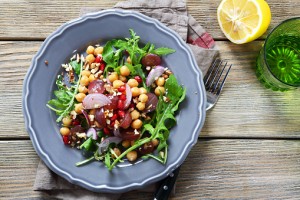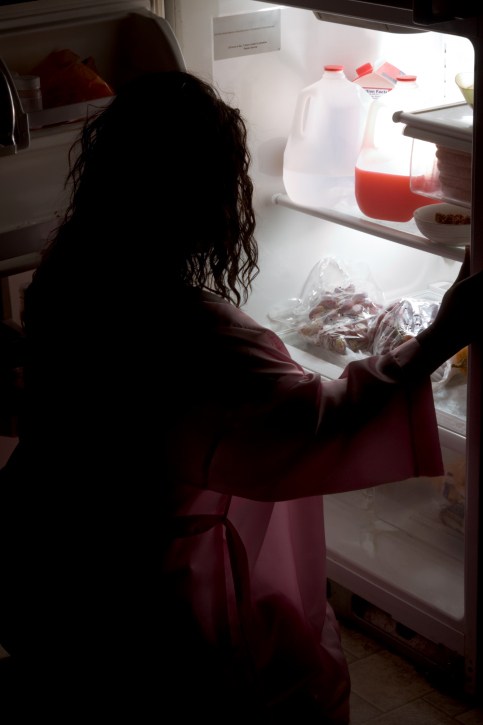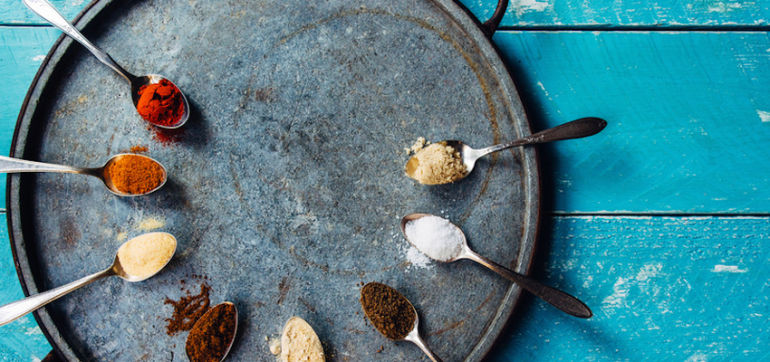Ten Doctor-Recommended Ways to Avoid This Silent Killer
 One in three adults have this, but because it has no signs or symptoms, many more of us may have it and not even know it. It can strike anyone at any time – even children. It is considered to be the most serious health problem in North America, and costs the U.S. about $93.5 billion dollars in health care services every year. It’s a common cause of debilitating conditions like kidney disease, blindness, mobility impairments and osteoporosis, and it is the precursor of the first and third leading causes of death. Saddest of all perhaps is the fact that, 90 percent of the time, it is completely preventable.
One in three adults have this, but because it has no signs or symptoms, many more of us may have it and not even know it. It can strike anyone at any time – even children. It is considered to be the most serious health problem in North America, and costs the U.S. about $93.5 billion dollars in health care services every year. It’s a common cause of debilitating conditions like kidney disease, blindness, mobility impairments and osteoporosis, and it is the precursor of the first and third leading causes of death. Saddest of all perhaps is the fact that, 90 percent of the time, it is completely preventable.
I’m talking about high blood pressure. In the full swing of 21st century living, more and more of us fall victim to chronic high blood pressure and hypertension every day and, to steer clear of the terrifying outcomes of this condition, are put on antihypertensive medications. Once on these medications, though, you may be stuck taking them for an extremely long period of time, and often, for the rest of your life – even if your blood pressure returns to normal.
Fortunately, the safest and most effective way to protect yourself from falling prey to high blood pressure, chronic illness, higher mortality risks and a lifetime of pharmaceutical dependency is with a few simple lifestyle changes. The CDC and several other national health organizations spend billions of dollars every year launching health and education programs throughout North America aimed at abating this incredibly serious epidemic. But today, I’m going to make your life easier by summarizing the most helpful, manageable and scientifically-backed methods of hypertension prevention for you here, below.
Any change you make today can have an enormous impact on the health and wellbeing of your future. You owe it to yourself and your family to not postpone your health any longer. So read on and get started…
Top 10 Doctor-Recommended Ways to Protect Yourself from High Blood Pressure:
1) Lose Weight
No doubt you’ve heard it before, but it bears repeating: losing weight is one of the most effective ways to reduce your blood pressure. Even just 10 pounds can significantly lower blood pressure and bring you out of the danger zone. A recent study concluded that intentional weight loss can yield blood pressure reductions such that some patients who are already taking antihypertensive (blood pressure-lowering) medications may either reduce the dose they take, or stop taking the drug(s) altogether (under a doctor’s care).
2) Exercise
Regular exercise has an enormous impact on blood pressure. Fit people maintain better blood sugar control, and have lower body weight and lower blood pressure than sedentary people. In fact, being sedentary is an emerging risk factor for obesity and cardiovascular disease. One of the mechanisms by which exercise helps reduce hypertension has to do with a force within blood vessels called shear stress. Engaging in exercise puts increased demands on muscles, of course, and that means more blood has to be pumped faster throughout the body to meet rising demands for energy, oxygen, and waste removal.
The physical action of blood moving along the lining of your vessels is what creates shear stress, and studies show that shear stress causes cells to produce life-saving anti-inflammatory and antioxidant compounds. This, in turn, helps blood vessels remain flexible, supple and relaxed, preventing blood pressure from rising and causing arterial and heart damage.
3) Eat More Plant Foods
A diet featuring plenty of fresh vegetables, whole grains, nuts, seeds, herbs, and fruits is exceptionally healthful for blood pressure. Experts cite numerous components of plant foods that improve blood pressure control. Plants supply dietary fiber, vitamins, minerals, heart-healthy mono- and poly-unsaturated fats, and compounds called phytonutrients. Many of these plant-based compounds have potent antioxidant activity that alleviate oxidative stress and discourages inflammation. This is key, because inflammation is an underlying, ongoing condition that’s linked to the development of chronic high blood pressure and atherosclerosis, the root causes of heart disease.
Time and time again, robust research continues to show that diets featuring lots of fruits and vegetables are associated with better blood pressure control and good heart health. The Dietary Approaches to Stop Hypertension (DASH) diet was developed by the National Institutes of Health to help people control their high blood pressure. It prominently features fresh fruits, vegetables and whole grains.
4) Increase Your Potassium Intake
Most doctors routinely recommend reducing your intake of common table salt to cut blood pressure. That’s because in some-but not all-individuals, excess dietary sodium is associated with elevated blood pressure. But new information calls into question the wisdom of recommending salt reduction for everyone. Salt consists of equal parts sodium and chloride, and emerging research suggests that low chloride levels may be just as bad for heart health as high sodium levels.
Belgian scientists reported fifteen years ago that low serum chloride levels are an independent risk factor for death. That includes death from cardiovascular disease and all other causes. Given that table salt is one of the chief sources of dietary chloride, this seems to contradict advice to lower your intake of salt. The Belgian study followed more than 9,000 men and women for a decade. People with the lowest chloride levels were more likely to die than people with higher levels.
This finding seems to have been largely ignored. Now, a new study confirms the Belgians’ finding that low chloride levels-not high levels-are associated with increased risk of death among people with hypertension, which suggests that standard advice to limit salt intake may warrant reevaluation.
A wiser approach to cutting sodium intake may be to stop blaming your table salt shaker, and to focus, instead, on cutting out all of the processed, pre-prepared and packaged foods that tend to host excessive amounts of sodium preservatives, as well as unhealthy amounts of sugar, fat and other undesirable chemicals. Also, boost your potassium intake from foods like bananas, white beans, dark leafy greens, squash, salmon, yogurt, mushrooms and avocados. Sodium becomes a health problem when it is out of balance with potassium, so increasing your potassium intake may make all the difference.
5) Boost Magnesium Intakes
Like sodium, chloride and potassium, magnesium play an important role in the regulation of blood pressure. As I mentioned, some experts note that rather than focusing on reducing salt intake, it may be more helpful to increase your consumption of potassium and magnesium. It’s best to obtain these nutrients from whole foods, though. Dietary patterns like DASH, or the Mediterranean diet, feature plenty of both of these minerals. Dark leafy greens, nuts and seeds, fish, beans and whole grains are good sources of magnesium.
6) Enjoy Cocoa
The “food of the gods” is available to us all in the form of cocoa and high-flavanol dark chocolate. Can something that tastes so good actually be good for you? In theory: yes. In reality, though, most chocolate sold in the United States is far from heart-healthy, due to low cocoa content and high sugar and fat content. So to get the blood-pressure-lowering benefits of cocoa, you need to consume high-quality dark chocolate with a high cocoa content. Be aware that milk chocolate doesn’t make the cut; it simply doesn’t have enough of the natural flavanols that give cocoa its rich, bitter flavor.
Studies show that eating dark chocolate can significantly reduce blood pressure among people with hypertension. But people who happen to enjoy the rich rewarding flavor of genuine chocolate needn’t worry: studies also show that chocolate does not affect blood pressure in people who already have normal blood pressure. To the joy of chocolate lovers world-wide, one analysis concluded that the relatively modest decrease in blood pressure resulting from cocoa consumption among hypertensive patients could be expected to slash the risk of a “cardiovascular event” by 20 percent over the course of five years.
7) Drink Alcohol in Moderation
Adult men and women who are not alcoholics may benefit from consuming alcohol in moderation. Men can consume two units of alcohol daily; women should consume just one. A unit is one shot (about one-and-a-half ounces) of 80-proof liquor, one beer, or one 4-ounce glass of wine.
Drinking these moderate amounts of alcohol may help curb rising blood pressure and has been associated with reduced risk of cardiovascular disease. However, excessive drinking may raise blood pressure, so stick to recommended amounts. Because of its resveratrol content, red wine may be an excellent choice. However, based on recent research, women who have been diagnosed with breast cancer should avoid alcohol altogether.
8) Try Beet Juice
Certain foods, such as beets and beetroot juice, have been shown to significantly reduce blood pressure. Beets are an excellent source of vegetable nitrates. Natural nitrates in vegetables are eventually converted into a simple compound, nitric oxide (NO). The body uses NO as a signaling molecule. Among other things, NO coaxes the smooth muscles lining the walls of blood vessels to relax. This allows blood vessels to expand, so blood can flow more freely under reduced pressure.
Most of the recent studies documenting the benefits of beets have involved the consumption of beetroot juice. But eating the whole vegetable is also beneficial. For instance, a small study conducted at Saint Louis University last year showed that eating whole beets “acutely” enhances exercise performance in “recreationally fit” runners. People who consumed beets ran 5% faster during the last mile of a 5-kilometer race than people who did not eat beets.
9) Relax
Modern life is fraught with stress. And stress is the enemy of normal blood pressure. Activities that alleviate stress; laughter, meditation, yoga, breathing techniques, refreshing sleep, a quite atmosphere, and even pleasant aromas, such as lavender or pine, may have a positive impact on blood pressure control. Conversely, getting too little sleep, exercise, or relaxation can negatively affect cardiovascular health, especially in the long term. Research suggests that engaging in meditative, breath-control activities, such as yoga, or tai chi, may help control blood pressure.
10) Try Fish Oil and Aged Garlic
Fish oil is one of the best dietary sources of the essential nutrients eicosapentaenoic acid (EPA) and docosahexaenoic acid (DHA). These omega-3 fatty acids have been shown to improve cardiovascular disease risk factors significantly, including blood pressure.
Aged garlic is also available as a dietary supplement. Research indicates it may significantly reduce blood pressure, and is safe for people already taking antihypertensive medications.
Remember, all it takes are simple dietary changes to make the world of difference in regulating hypertension. Just a few effortless adjustments to your diet and lifestyle could get your high blood pressure back to 120 over 80 in no time.
Yours in Good Health,
![]()
Victor Marchione, M.D.
-
How To Reduce Your Belly Fat?
You can find untold thousands of dollars being spent by physical
-
Weight Loss Sabotage I Deserve It
A few weeks ago, I wrote about feeling deserving to lose weight. But t
-
List Of Diets That Works With Weight Loss
There are so many different diets that are available today that it bec
-
Weight Loss Superfecta
If you are a fan of horse racing, you are familiar with the exotic bet
-
Juicing ~ Go Green, Go Lean
Would you like to feel energized, have radiant looking skin and a m
-
Dieting Success Vs Failure
What do you think is the percentage of people who successfully complet
- DON'T MISS
- How to Lose Weight & Keep it Off!
- 8-Steps to Surviving Holiday Weight Gain
- Advantages And Disadvantages Of Geothermal Energy
- Why Herbal Weight Loss Is A Highly Effective And Natural Diet
- Fad Diets Popular Ways To Drop Weight Fast
- Best Diet - 3 Key Ingredients For Ultimate Diet Success
- No Weight Gain For Me This Christmas How About You
- The Fat Loss 4 Idiots Program: A New Healthier You
- Tips To Help You Lose Weight Quickly After Pregnancy
- Losing Weight The Safe And Easy Way




